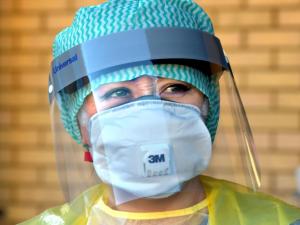
By David Young and Rebecca Black, PA
Preparations are under way to establish large temporary field hospitals for coronavirus patients in Northern Ireland.
Plans for the regional critical care facilities are being developed after modelling indicated the current health service network may not have the capacity to cope at the peak of the outbreak.
The move was outlined in a letter to health trust chief executives from the most senior civil servant in Stormont's Department of Health, permanent secretary Richard Pengelly.
It is understood officials have been working to identify buildings across the region that would be best suited to act as temporary hospitals.
The plans are part of a series of moves to prepare Northern Ireland's health service for the worst of the outbreak.
The vast majority of hospital visits have been cancelled and two accident and emergency departments - at Daisy Hill in Newry and Downe Area Hospital in Downpatrick - have been closed as A&E services are consolidated at major acute sites.
It also emerged on Thursday that part of Co Down Army base will be used as a temporary mortuary if current body storage capacity in the region is overwhelmed.
The deaths of three more people with coronavirus were announced on Thursday, bringing the total in Northern Ireland to 10.
The total number of confirmed cases in the region is 241, though health chiefs acknowledge the actual number infected with the virus is likely to be in the thousands.
In the letter to the heath trust bosses, Mr Pengelly explained why temporary hospitals may be required.
"Our modelling suggests that at the peak of the outbreak in Northern Ireland, our existing hospital estate may not have sufficient capacity to provide critical care to the number of patients who will require it," he wrote.
"We are therefore moving immediately to develop large regional, temporary, respiratory hospitals.
"These will be a regional resource and will require a regional approach in terms of staffing and access. More details of how these will work in practice will be shared when they are ready."
Earlier on Thursday, Northern Ireland's health minister Robin Swann said he "doesn't know" what the system will look like in a week's time.
Mr Swann and the region's chief medical officer Dr Michael McBride were questioned by MLAs on their Assembly scrutiny committee about increasing coronavirus testing, procuring more protective equipment for healthcare staff and ventilators.
The minister responded by saying the focus is currently on getting front line support to those people suffering from coronavirus.
As part of plans for coping with the surge, medics have been urged to prioritise patient care and urgently discharging all medically fit patients.
General visiting has also been stopped, with exceptions in place for one visitor for admitted children, mothers giving birth, children in intensive care, critical care areas and end-of-life care.
In his letter, Mr Pengelly warned that even if social distancing helped flatten the curve, the health service was still likely to require more critical care capacity than was currently available.
"In some cases, it is recognised that this may mean that other services are temporarily reduced as the focus is on providing essential services and helping those most at risk access the best possible treatment," he wrote.
"It is therefore suggested that clinicians should begin to categorise patients into priority groups.
"The lowest prioritisation would be where treatment can be delayed for two to three months with no predicted negative outcome.
"Urgent and emergency treatments should continue to be given top priority."
On Thursday morning, Stormont's health committee chairman Colm Gildernew asked the minister about plans for community testing sites.
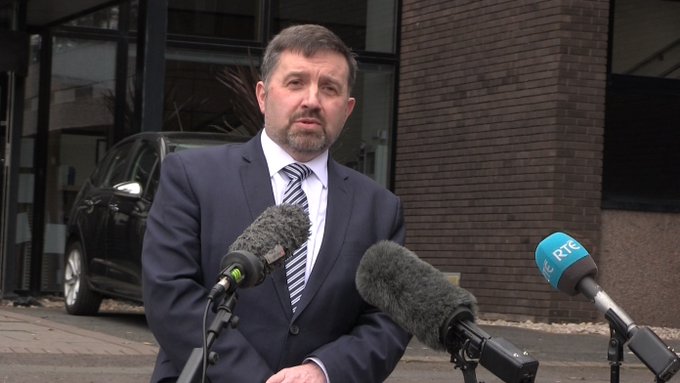
Mr Swann said: "We're not at a point where we are going to open community testing sites.
"We're getting front line support to those people presenting with that mid-range symptom of Covid-19," he said, adding: "we're not at that stage yet as we don't have that capacity".
Dr McBride said next week the health service will be testing 1,100 people per day.
He told the committee that there have been discussions about making community testing available at a later stage.
Mr Swann also told the committee that there are 650 ventilators "currently on their way" to Northern Ireland.
"I don't know what the health service will look like in a week's time," he added.
"The surge plans are in place to do what we have to do.
"To give any sort of commitment now that we will return 100% to where we were two months ago - I can't give it. I won't give it, because I can't stand over it."


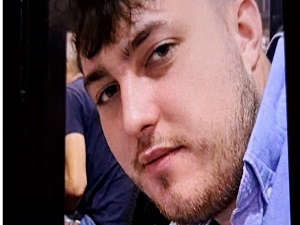 Man’s body found in Cookstown in search for missing 21-year-old
Man’s body found in Cookstown in search for missing 21-year-old
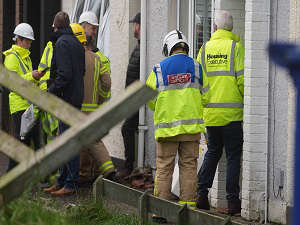 Two taken to hospital following suspected gas explosion in east Belfast
Two taken to hospital following suspected gas explosion in east Belfast
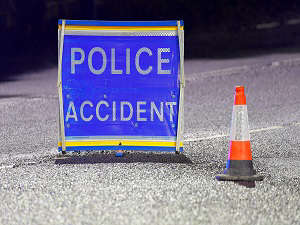 Man critically ill in hospital following road crash in Co Tyrone n
Man critically ill in hospital following road crash in Co Tyrone n
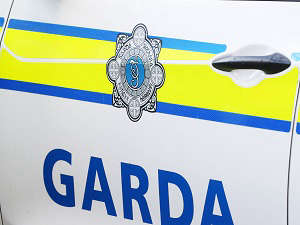 Man dead following assault in Donegal
Man dead following assault in Donegal
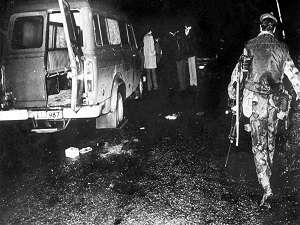 ’24 hours of evil’: Kingsmill massacre survivor remembers events 50 years ago
’24 hours of evil’: Kingsmill massacre survivor remembers events 50 years ago